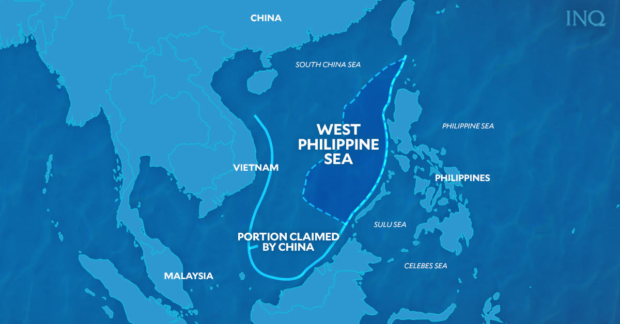Business tycoon Manuel V. Pangilinan on Tuesday said it was now time to “talk about” oil and gas exploration in the West Philippine Sea in light of President Marcos’ scheduled visit to China in January.
Pangilinan, through listed PXP Energy Corp., holds service contracts to develop and harness petroleum blocks in the West Philippine Sea close to Palawan in waters claimed by China.
Forum Energy Ltd., a British upstream oil and gas company in which PXP Energy owns a controlling stake of 79.13 percent, operates Service Contract (SC) 72 at Recto (Reed) Bank, the Sampaguita natural gas site close to the Malampaya gas field.
Another area, SC 75 located northwest of Palawan, spans 6,160 square kilometers with PXP Energy as the operator.
On April 6, 2022, the Department of Energy (DOE) ordered the suspension of oil exploration activities in the West Philippine Sea.
The order effectively stopped all exploration activities for Service Contracts 72 and 75, pending a go signal from the Security, Justice and Peace Coordinating Cluster (SJPCC) which cited “the political, diplomatic and national security implications of any activity in the West Philippine Sea.”
As a result, PXP Energy Corp. and its subsidiary Forum Energy Ltd.—which had been hired by the government to conduct exploration activities—had to declare a force majeure, saying the order prevented them from performing their obligations.
Still, PXP Energy remains keen on resuming exploration activities at both sites.
‘Sovereignty issues’
Pangilinan told reporters on Tuesday that his group had talks with a Chinese company “but not with CNOOC,” the state-run China National Offshore Oil Corp.
The MVP Group was earlier in discussions with CNOOC but no firm commitments were reached as the talks were largely hinged on the agreement to be forged by the Philippine and Chinese governments.
A source disclosed back in April that CNOOC refused to sign a commercial agreement with Forum unless the Philippines agreed to delete two provisions in the service contract: one, that it owns the oil and gas in Recto Bank, and two, that Philippine laws will govern the service contract.
When asked on Tuesday whether it was possible for the MVP group and the other Chinese company to bypass the government-to-government arrangement to explore for oil and gas, Pangilinan said: “We don’t have the authority to talk about sovereignty issues.”
“Why are we walking on eggshells? Because when we talk about sovereignty, it’s them and we need to respect that. CNOOC is subject to the Chinese government and they cannot do anything,” he added.
‘Pragmatic approach’
The Philippines and China have no official joint exploration agreement. They had a memorandum of understanding in 2018 on joint oil and gas development, but were unable to reach a consensus even before Manila terminated the negotiations in June this year.
Pangilinan said there could be a “pragmatic” solution that both sides could agree upon, citing the resolution of a similar dispute between Lebanon and Israel.
“What they did was cut the disputed territory by half. They were driven by mutual interest of supplying gas to Europe since they are one of the closest sources of gas,” Pangilinan said.
“Instead of quarreling forever who owns which, they said cut the bay into half and develop it quickly so they can sell to Europe. That’s a pragmatic approach,” he said.
The DOE said last month that companies wanting to explore resources in the West Philippine Sea would need to submit their work program first before they could do so.
